Geothermal Heating FAQs
Geothermal Heating FAQs
Since energy has become increasingly expensive, most homeowners are turning to geothermal heating systems in Salt Lake City and the surrounding areas. Although some people have yet to consider this option, homeowners who’ve switched from heating oil to geothermal heating have reaped the benefits. Although the upfront costs can be steep, this source of energy is cost-effective in the long run.
Read on for the most asked questions about geothermal power or just give our Salt Lake City heating service pros a call today!
1. How Does Geothermal Heating Work?
As the sun heats the earth’s core, it generates energy. A geothermal heating system is designed to harness this energy and transfer it to the surface so it can be distributed to your home. The technology utilizes closed-loop systems that include a series of pipes filled with water.
Once this water is warmed in the ground, it’s used to transfer heat in your home. These pipes are connected to your geothermal heat pump that’s connected to the central heating system in your home. The amount of heat that comes to your geothermal heater is controlled by a thermostat.
2. How Does It Compare to Other Sources?
Traditional heating systems in Salt Lake City burn fossil fuels such as oil, gas, and propane. The heat is transferred through convection to various parts of your home. The system has a geothermal heat pump that both heats and cools according to the preset modes. The ability to adjust the temperatures to suit your preferences helps to maximize efficiency and minimize wastage.
With a traditional HVAC system, you need a lot of electrical power to heat the refrigerant before heat is distributed within your house. So instead of burning fossil fuels to generate heat, a geothermal system can transfer heat from the earth to provide an affordable and efficient method of heating and cooling your home. You’ll need very little electric power to operate the fan, pump, and compressor.
3. Is It Worth It?
A geothermal heating system is four times as efficient as a conventional HVAC system. If your home is insulated properly, you’ll notice a significant drop in your energy bills. Although the cost of installing the geothermal heating system is double that of a traditional HVAC system, you can save money if you plan for the long haul as it will reduce your monthly bills significantly. Considering that the system will pay for itself within one year and its life expectancy can surpass 20 years, your investment will be worth it.
4. What Is a Geothermal Heat Pump?
The geothermal heat pump concentrates thermal energy before it’s transferred to your home during the winter. During the summer, it reverses the process by getting rid of the excess heat from your home and transferring it through pipes to the ground. Even during the summer, you’ll need some hot water.
Instead of wasting the heat energy, it recycles this heat and transfers it to the water heater. As such, it can supplement the conventional water heating system. Considering that the cost of heating the water can skyrocket in the winter, this pump comes in handy as it can save you a significant amount of money.
5. What Are the Disadvantages of Geothermal Heating?
While this alternative source of energy will save you a fortune in the long run, the steep installation costs can be frustrating. Homeowners pay through the nose to install a geothermal heating or cooling system. For the unit to operate efficiently and last for decades, you have to invest in ground looping and pay for excavations, ductwork, and installation expenses.
Once you complete the project, you’ll avoid the headaches since the system is less likely to break down. While this system is more expensive than gas, it’s an energy-efficient way to lower your monthly bills.
6. How Much Space Do You Need?
A mid-sized geothermal heating unit requires 1,800 square feet for horizontal loops. Since the average-sized lot in the U.S. is 8,000 square feet, it can fit in a typical single-family home comfortably. The rule of thumb is to isolate the unit and fence all the outdoor installations to prevent vandalism. You need at least 5 feet between the AC condenser unit and any obstruction or wall.
Additionally, the unit needs sufficient clearance from the boundaries to prevent interference during excavations and installation of other infrastructure. Before choosing the best site for your geothermal heating unit, check the requirements with your local council to avoid disappointment down the road.
7. Does It Have a Back Up?
The geothermal heater backup comes in the form of a secondary heater or a propane furnace. Whenever the main heat pump loses efficiency due to cold temperatures, it turns on automatically. Naturally, a geothermal heater doesn’t require a backup since it always has enough heat to spare. It’s configured in a way that the backup will turn on automatically if the primary unit fails. If you take proper care of your geothermal heat pump, you might not need the backup at all. You can trust the geothermal system to cater to your home heating needs, even on the freezing nights of winter.
8. How Long Does the Installation Take?
Due to the amount of work involved and the accuracy required to prolong the lifespan, the geothermal heating systems are quite labor-intensive. The ground loops need to be buried at least 400 feet deep, and they take an immense amount of time to install. The total amount of time you require to complete the project depends on site conditions, type of soil, size of the lot, and the loop configuration.
The best approach is to spend as much time in the planning stages as possible to avoid surprises in the digging and drilling phases. The process of installing the ground loops can intimidate the average contractor. As such, you should do your homework wisely before signing on the dotted line. For top-quality heating installation in Salt Lake City, UT, trust the pros at All Hours.
9. Does the System Require Much Maintenance?
The secret to extending the lifespan of your heating system is to take the necessary precautions during the installation stage. Once the system is up and running, the contractor will provide you with the maintenance manual. A programmable thermostat helps to maintain efficiency since the system runs only when necessary.
Air filters can be replaced once every three months, but for the best results, you need a whole-house air cleaner. When you invest in a maintenance plan, a technician will tune-up your unit once a year. They’ll check the condensation pans, refrigerant levels, and electrical connections. They’ll also do a thorough inspection that includes checking for leaks in the ductwork. If you’re overdue for Salt Lake City heating maintenance, schedule with our team today!
Contact the Professionals
Installing a geothermal heating system in Salt Lake City is an overwhelming project that requires expertise and a considerable amount of sophisticated equipment. Homeowners living in SLC should reach out to professionals at All Hours Plumbing, Heating & Air. Our friendly and certified technicians are always available to attend to clients in Utah, Davis, SLC, Wasatch, and Park City.
We also provide other services such as septic and sewer line services, boiler repair, drain cleaning, AC and heating, and 24/7 emergency services. Contact our SLC heating experts at All Hours Plumbing, Drain Cleaning, Heating & Cooling for outstanding geothermal heating services!
Learn More About Our Salt Lake City HVAC Services

Meet the Team
All Hours Plumbing, Heating and Cooling provides affordable plumbing, HVAC, and drain cleaning services in Salt Lake City, UT. We offer 24-hour emergency services and we’re dedicated to providing the absolute highest quality service at the best prices. We don’t overbid, and we don’t underbid with the idea of tacking on hidden fees; we simply give honest prices with honest answers.
Our complete lines of Salt Lake City plumbing and HVAC services include everything from drain cleaning and water heater replacement, to air conditioning repair and furnace maintenance. No matter what you need (or when you need it!), when it comes to your plumbing or HVAC, we have you covered. Reach out to us when you need plumbing or HVAC help, and we’ll show you how easy it can be to get your home’s systems working well again soon!

Honest Pricing
Honest Answers

Clean Home
Guarantee


